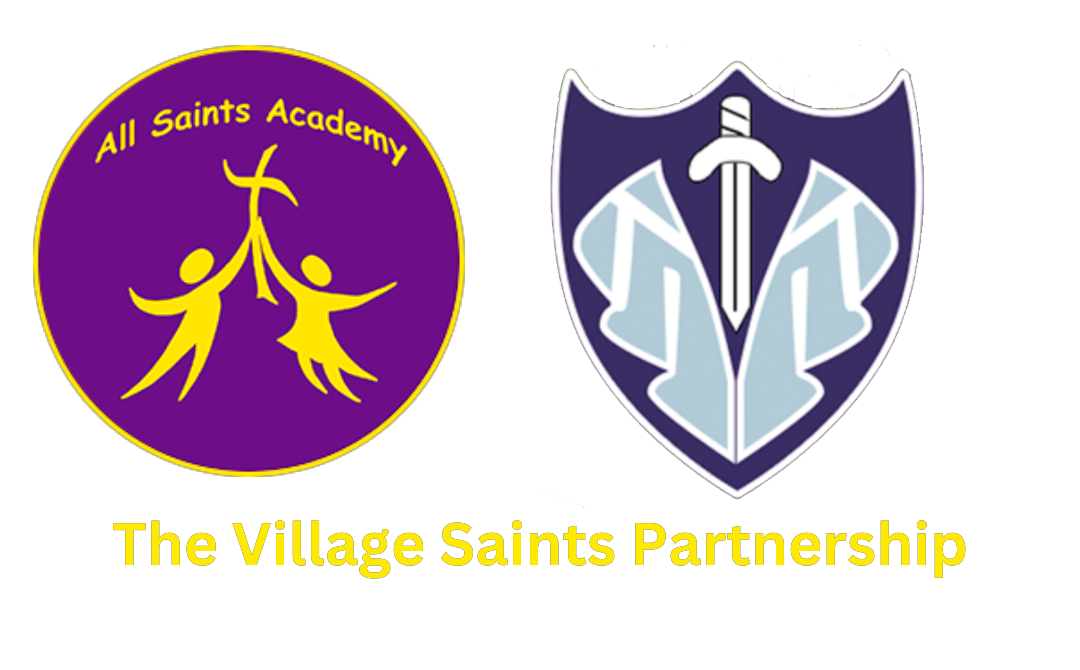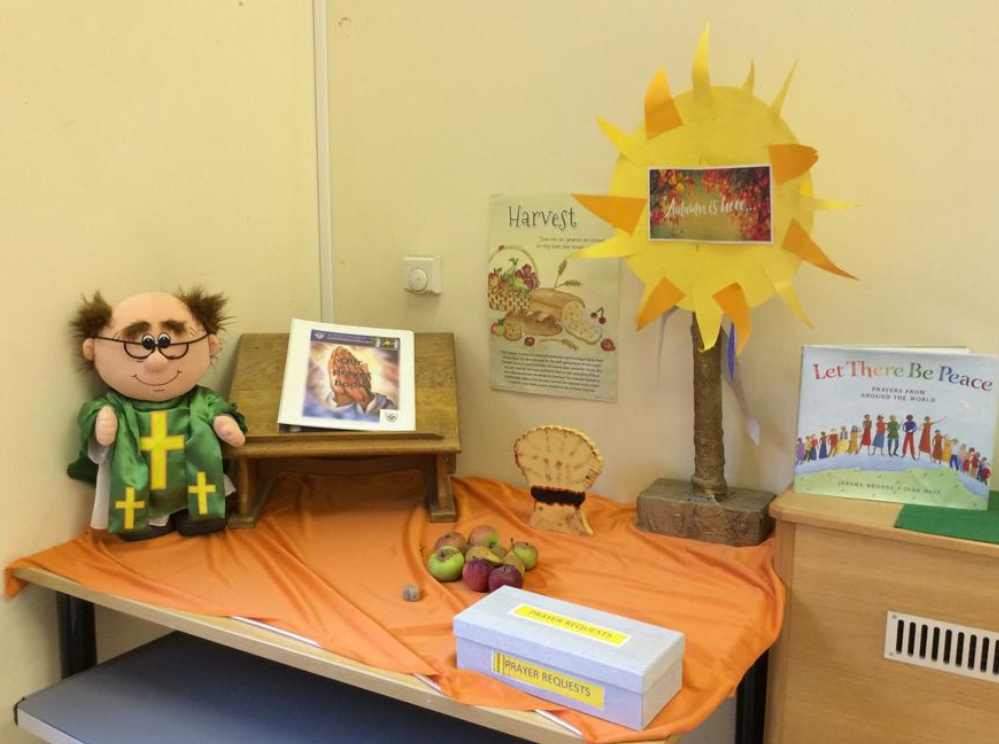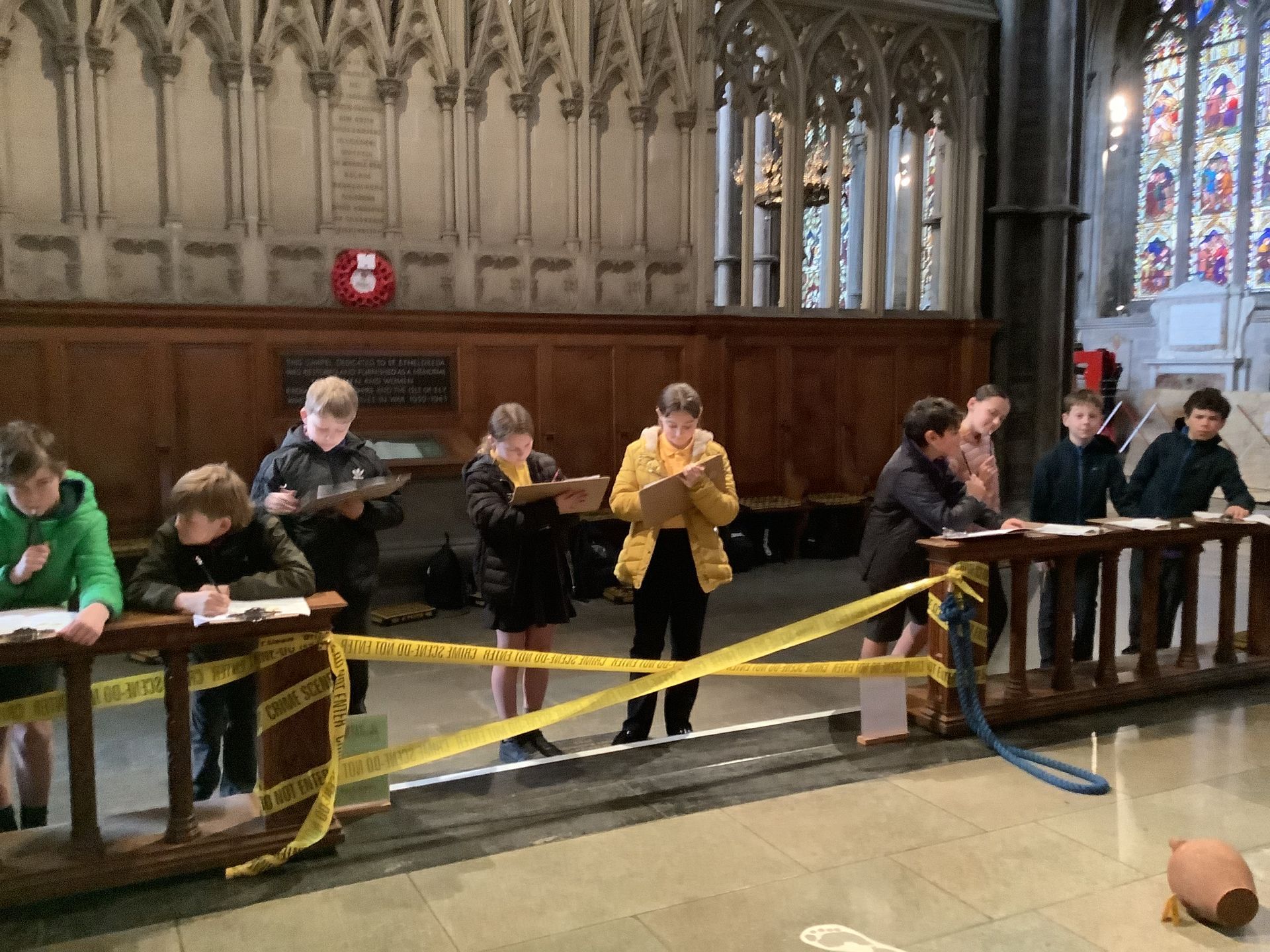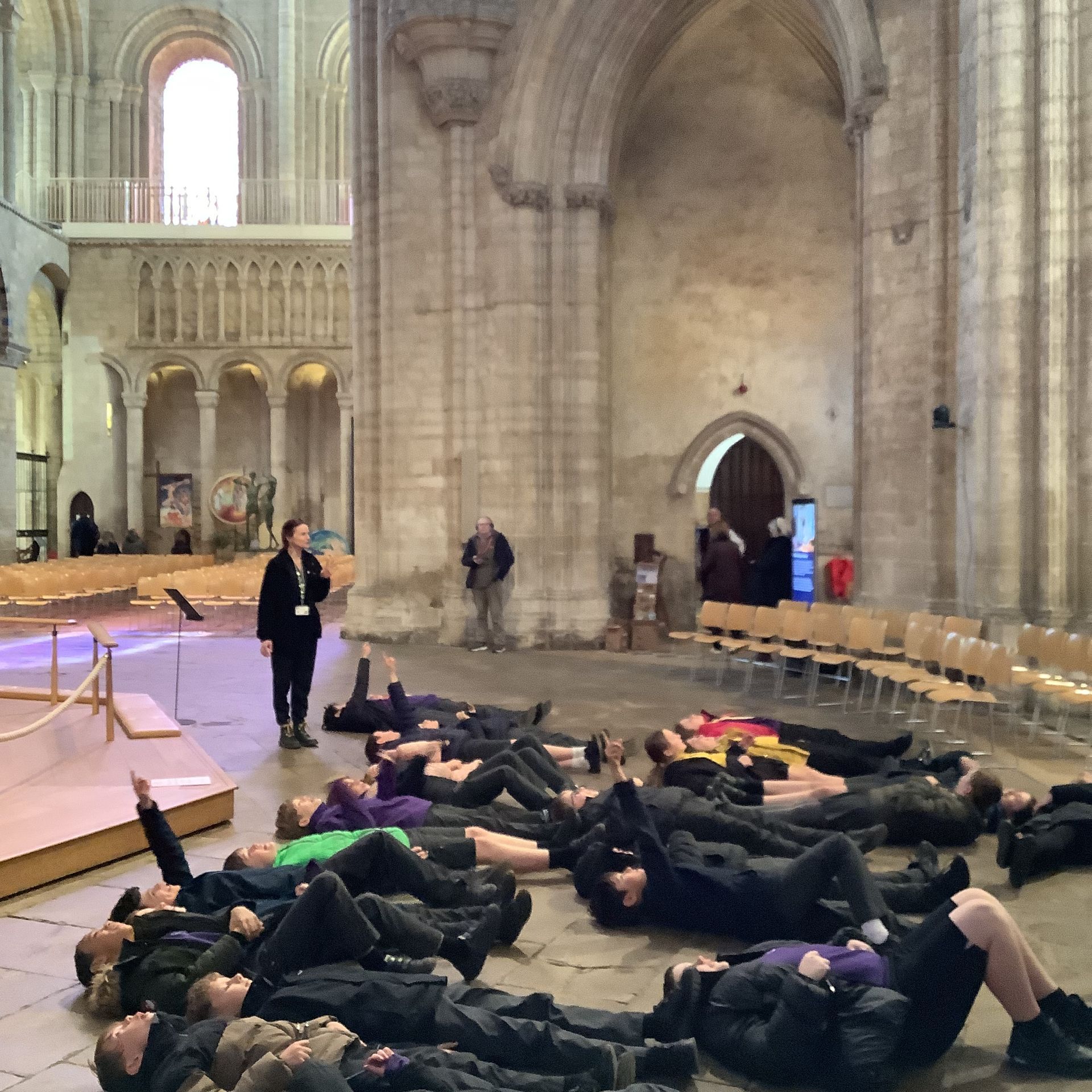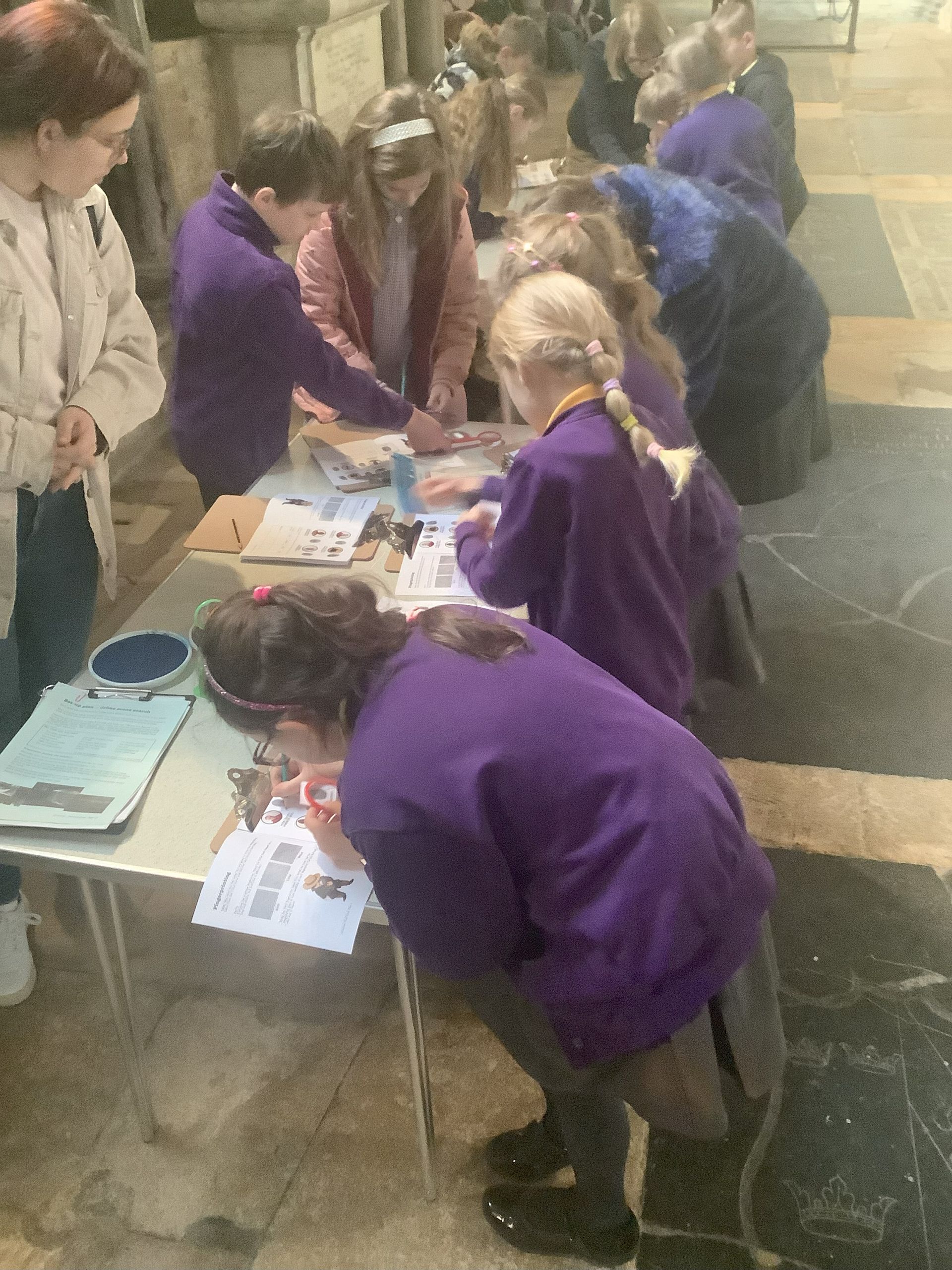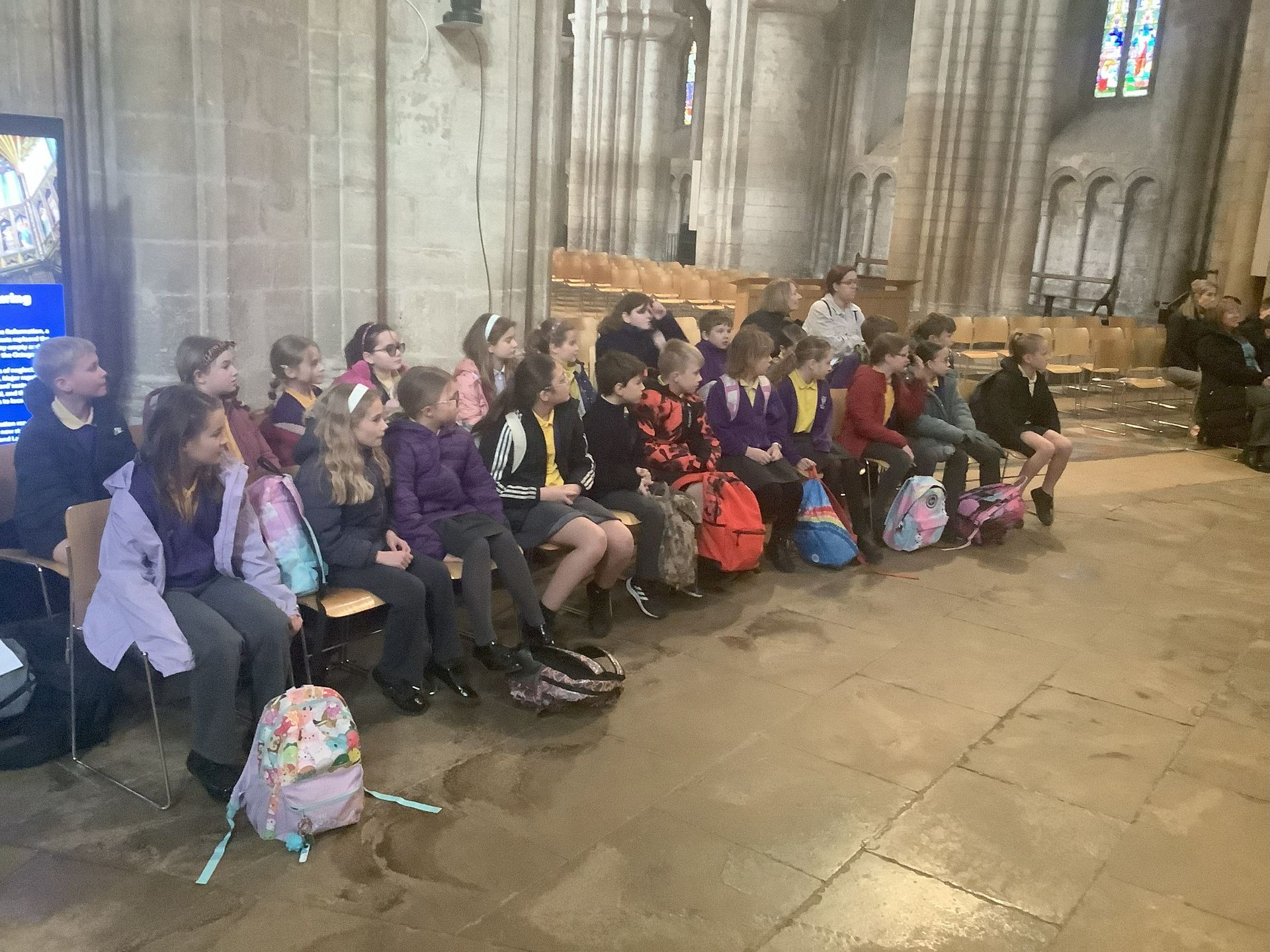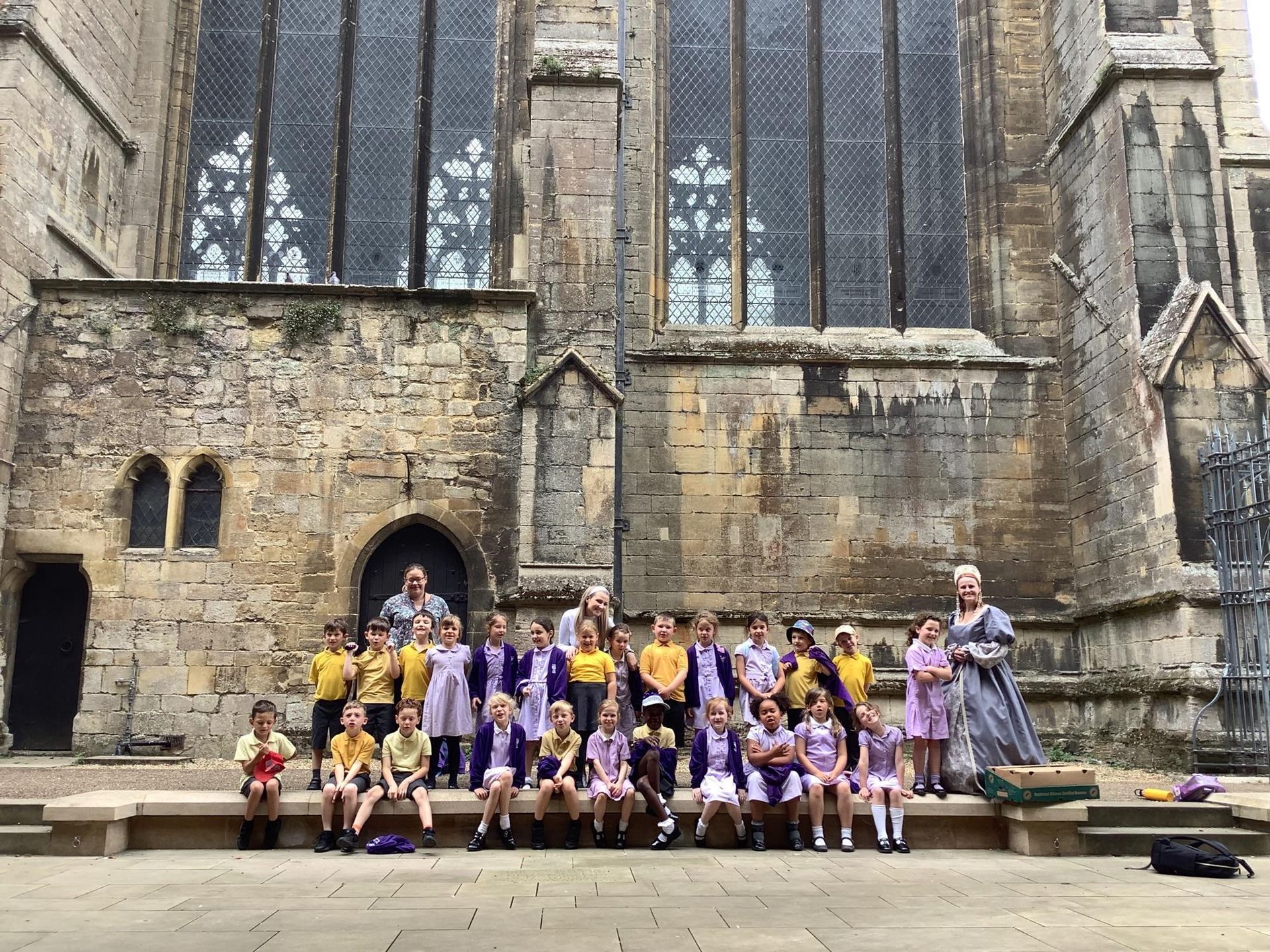
Being Church Schools
Respecting, Generous, Achieving-St Martin
Loving All Our Neighbours-All Saints
Religious Education
At Village Saints Partnership schools, we follow a Trust-wide Religious Education (RE) curriculum, which is guided by three core types of knowledge: substantive, disciplinary, and personal. Our balanced curriculum goes beyond simply imparting religious facts. It encourages our students to engage deeply with beliefs, worldviews, and their own perspectives.
Substantive Knowledge: Content Mastery
Substantive knowledge forms the foundation of what students are expected to know—factual information about religious beliefs, practices, and traditions. We want our children to know that various members of the community can practise their faiths differently whilst still being rooted in the core principles. The 4 key concepts are:
· Identity and belonging
· Meaning and Purpose
· Power and Authority
· Values and Morality
Disciplinary Knowledge: Engaging with Content Critically
The shift towards disciplinary knowledge emphasises the development of skills and methodologies that reflect how experts engage with religious content. This includes thinking like theologians, philosophers, and human/social scientists (lived experiences), using questions and tools that help students analyse religious texts, practices, and worldviews critically. For example:
Theology asks, "What do people believe?" with students using textual analysis to interpret religious stories.
Lived Experiences explore "How do people live?" considering how context shapes religious practice.
Philosophy prompts students to think critically: "How do people reason about the world?" fostering skills in argumentation and ethical reflection.
This approach is akin to historical studies, where understanding events and figures requires students to engage with the processes of inquiry - examining causes, consequences, and perspectives. Substantive knowledge serves as a vehicle for deepening disciplinary knowledge, ensuring that students are not merely absorbing information but learning how to approach it thoughtfully and analytically.
Personal Knowledge: Articulating One's Own Worldview
Personal knowledge focuses on helping students reflect on and articulate their own beliefs and values. This goes beyond simple expressions of "what" students believe, encouraging them to critically analyse the "why" behind their beliefs and values. Key reflective questions include:
Why do I believe what I believe?
How does my context shape my worldview?
This reflective practice is designed to help students understand how worldviews - religious or non-religious - are influenced by personal and social contexts, and to see religion and belief systems as deeply connected to human experience.
Curriculum Structure: A Balanced Approach
The curriculum aims for a balance between these three knowledge types.
The curriculum is designed to gradually introduce children to the disciplinary lenses of philosophy, theology, lived experiences. Through this, children will develop the necessary tools and skills to explore these perspectives in a systematic manner. For example, theology might begin with understanding the text, while social sciences encourage the use of maps, interviews, and surveys to understand religious practices in context. Over time, students will see the interconnectedness of these lenses, preparing them for more advanced interdisciplinary studies in secondary school.
A key innovation in this curriculum is its framing around "worldviews" rather than solely religious belief. Children are encouraged to see the study of religion as relevant to their own lives, regardless of whether they identify as religious. This fosters inclusivity, showing that everyone holds a worldview shaped by personal, cultural, and societal factors. While the majority of learning is rooted in Christian worldviews, reflecting the UK’s religious heritage, the broader focus on worldviews allows for engagement with a wide range of perspectives.
Our School Prayer
This is our school.
Let peace live here.
Let the rooms be full of happiness.
Let love abide here.
Love of one another,
Love of all people,
Love of life itself,
and love of God.
Let us remember
That as many hands build a house,
Many hearts make a school.
Amen
DEMAT Values
Love, Community, Trust, Respect, Ambition.
To Learn. To know. To Lead out.
I can do all things through Christ who strengthens me.
(Philippians 4:13)
Collective Worship
As Church of England Schools, Collective Worship is carried out on a daily basis. It is Christian in content and encourages worship of God. Collective worship allows time for guidance, positive thought and development on spiritual, moral, social and emotional issues. Worship also allows an opportunity for quiet reflection and exploration of self.
Daily worship may be led by staff, children or visitors to the school. These worship times have a theme and may include stories, songs or hymns, prayers plus a time of reflection. At St Martin there is a stained glass window in the school hall which was created by pupils at the school and is a spectacular focal point for worship. At All Saints, there is a purpose built Chapel. We follow the Christian calendar and celebrate special days and festivals throughout the year. Parents and the community are warmly invited to share our daily worship and weekly celebrations as well as these special services.
Parents have the right to withdraw their child from Collective Worship if their own religious beliefs make this necessary. If you wish to withdraw your child please contact the Headteacher.
We actively encourage all children to take part in worship and our Worship Group are actively involved daily in the preparation and delivery of worship. All classes visit the local church at least once a term and we encourage visits at least once in a school year to places of worship in the wider community. Each class is responsible for leading a worship every half term and we welcome parents to share this with us.
In school, there is much to thank God for, much to praise, much to hope and aspire to. We celebrate wisdom, hope, community and dignity.
We are part of the Diocecse of Ely and you can link to the Diocese of Ely website by clicking here.
Worship Group
The Church school community gathers daily for an act of Christian Collective Worship.
Collective Worship is an extremely important part of the school day at The Village Saints Partnership as we use this time to reflect, be still and to worship God. The Worship Group is a group of pupils who take a leading role in Collective Worship.
We remember how Jesus welcomed children and used them as models of faith when speaking to his followers. (Luke chp 18 vss 15-17)
What does the Worship Group do?
The Worship Group have many roles each day to ensure the smooth running of Collective Worship:
- preparing the room for worship and clearing up afterwards
- operating the laptop and the CD player
- holding open doors, lighting candles, setting up the worship table
- being called up by adults to take part in a drama or to lead actions to songs
As well as this, the Worship Group also support in the planning, delivering and evaluating of Collective Worship. They write prayers linked to the current Christian value and use the resource 'Flippin Praise' to support with their planning.
Our Worship Group also support the monitoring of Reflection Areas in school and are brilliant role-models as they promote our school values.
